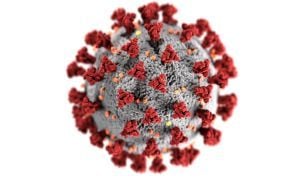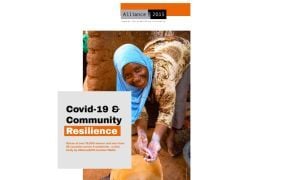
Read our 2023 annual report

Knowledge Hub
Covid-19 Research
Since June 2020 Concern has been conducting research in Malawi, Somalia, Sierra Leone and Bangladesh to track the impact of the Covid-19 pandemic and the national level responses on some of the world's poorest people. We have interviewed households, mainly by phone, to understand what affect the pandemic is having on people's health, livelihoods, and coping strategies. Households have been interviewed four times, in late June, mid July, early August and early September, allowing a picture to emerge of how their situation is changing over time.
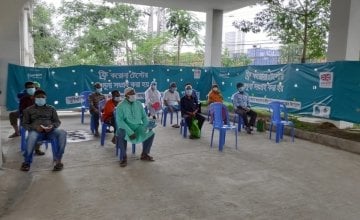
The reports also outline what Concern is doing in each context to respond to the situation and mitigate the negative affects on the people affected by it.
Overview
Government responses were swift in each country, but in many instances have exacerbated underlying challenges, with poverty levels expected to rise in the longer term, and access to essential services, such as health and education restricted in the medium-term. Our research shows that people have a solid understanding of Covid-19 and the guidelines they should follow to protect themselves. However, often they are not in a position to follow these recommendations.
Early on, we observed high levels of fear amongst respondents, and while this still lingers, increasingly it is being replaced with a sense of apathy as people begin to feel the messaging does not apply to them and they return to the struggles of their daily lives. Restrictions introduced on travel means that the price of food has increased, in urban areas in particular this is leading to changes in the quantity and quality of food the poorest are able to consume, with the potential to affect children’s nutritional status over time.
People have also been affected by changes in how they earn their livelihoods, those dependent on small scale businesses have noticed a sharp decline in the number of customers paired with an increase in the number of requests to have goods on credit, others who rely on casual labour highlight how this is increasingly hard to find. Children in particular have been affected by the lockdown and the closure of schools, with the poorest not able to access online or radio based education initiatives.
On a more positive note, our interviews also show that early and well-targeted interventions can help to alleviate some of these challenges.
Download Overview report
Malawi
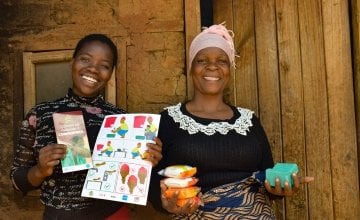
Malawi’s population of 17.6 million is highly susceptible to Covid-19, especially its older population; (5% are aged 60+). HIV prevalence is at 9.2 %, while additional non-communicable diseases including diabetes, heart problems, and blood pressure make Malawian communities particularly vulnerable to Covid-19. Health system challenges, including insufficient health workers, chronic shortages of essential drugs, and basic medical equipment, means Malawi has limited capacity to deal with any increased burden on health centres, should cases continue to rise.
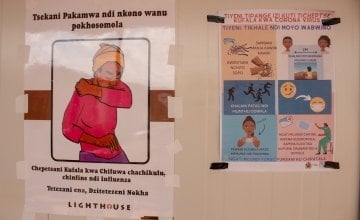
In response to the threat posed by the Covid-19 pandemic, the Government of Malawi declared a State of National Disaster on 20th March 2020 and launched a National Covid-19 Preparedness and Response Plan on the 8th April, several days after the first cases were confirmed in the country. Early prevention responses from the government included the suspension of all formal meetings, gatherings and conferences, with the president announcing a 21-day lockdown starting Saturday 18 April, that was subsequently reversed to allow for more consultation to prevent harm to the poorest and most vulnerable of society.
At the beginning of May, the Government of Malawi, UN agencies and leading INGOs launched an Emergency Appeal that coordinated organisations’ immediate response to Covid-19, supporting the Government’s preparedness and response efforts through targeting 6.7 million people.
A global pandemic unfolds in different ways in different countries, and while immediate health impacts remain the primary focus of attention in many countries, the secondary impacts on food security, livelihoods, access to basic health services and the longer-term impacts on children’s education and development are increasingly receiving attention.
In this brief, we look at how the response in Malawi has affected some of the poorest households under each of these areas in three geographic locations where Concern Worldwide works.
Download Malawi report
Somalia
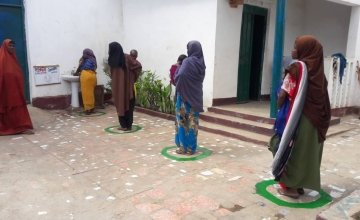
Concern has tracked changes in the lives and livelihoods of a number of their programme participants in Somalia between June and September 2020. Through the August and September rounds of data collection, it is apparent that Covid-19 is becoming less of a concern for people in Somalia, with a widespread belief that the pandemic is over. This has seen people shy away from following previously delivered messages on how to avoid being infected, while the cost of materials such as soap and masks is seen as being prohibitive to their use.
Those interviewed had a generally positive attitude towards how the restrictions have been implemented. However, the impact of the pandemic, including the global economic shock, in conjunction with underlying problems in the economy mean that livelihoods remain precarious. Until some restrictions were lifted in August, even the most basic employment opportunities had dried up. While income-generating opportunities have improved subsequently, and people are clearly more positive in terms of their outlook for the future, most households interviewed remain dependent on some form of external assistance and express an on-going worry that this assistance will end. A number have disposed of productive assets to survive over the previous months, which will have a continued negative impact on them going forward.
People lack access to the most basic needs such as adequate food, health care and education, though the re-opening of schools is seen in a positive light. Women have been disproportionately affected by changes in food availability, workload and domestic tensions, though in some isolated instances there are examples of men taking on more caring responsibilities. Respondents look for support in terms of cash transfers to help meet immediate needs and in the longer term to reconstruct their livelihoods.
Download Somalia report
Bangladesh
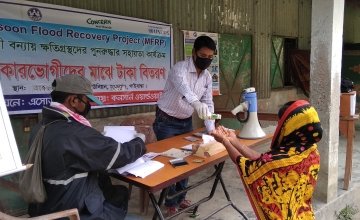
In Bangladesh, the first three known cases of Covid-19 were reported on 8 March 2020. On 22 March, a 10-day shutdown effective from the 26th of the month was declared. Subsequently the government asked the army to enforce social distancing strictly, with teams of soldiers deployed across the country, leaving the streets empty in the capital Dhaka and most roadside shops closed.
Bangladesh exemplifies the triple blow that many countries have suffered from Covid-19:
- domestic slowdown caused by the disease and the efforts to contain its spread;
- a sharp decline in exports, and
- a drop in remittances
In this brief, we report on the experiences of a number of people in Dhaka and Chattogram on the impact of the pandemic and the subsequent response. All are currently included on Concern Worldwide’s Improving the Lives of the Urban Extreme Poor (ILUEP) livelihood programme which is funded by Irish Aid.
Download Bangladesh report
Sierra Leone
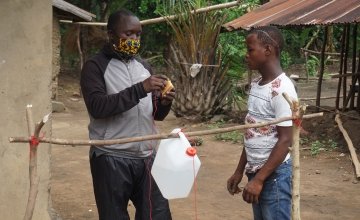
By 21 August, there were 1,969 confirmed cases of Covid-19 in Sierra Leone and 69 deaths, however there is a sense these figures may underestimate the scale of the pandemic.
The Sierra Leone Government has implemented what is generally perceived as a well-organised national response. Schools were officially closed on 31 March, and other actions included a series of short three-day lockdowns since early April, limitations on inter-district travel (subsequently lifted), a curfew (currently in place from 11 in the evening to six in the morning), and the compulsory wearing of facemasks since 1 June. On 10 July, as part of a partial lifting of restrictions, the president announced that places of worship could reopen and from 13 July, that air travel could resume. Exam classes returned to school on 1 July for four weeks, and schools in general will re-open on 5th October 2020.
However, the pandemic is considered to be compounding an economic situation already severely affected by currency depreciation and rampant inflation, with a drop in external and internal demand curtailing economic activity, and containment measures disrupting domestic supply chains and leading to bottlenecks in the transportation of agricultural products. Prices of major food commodities have risen well above their long-term average, and a potential reduction in domestic agricultural production, given a below-average rainfall forecast, in the coming season could lead to further food price increases.
In this Brief, we examine how the response to Covid-19 in Sierra Leone has affected some of the poorest households in terms of their food security, livelihoods, access to basic health services and the longer-term impacts on children’s education in locations where Concern Worldwide works.
Download Sierra Leone report
This research has been supported by several donors including the Irish Government and the European Union. All opinions expressed are those of the authors. The views expressed herein should not be taken, in any way, to reflect the official opinion of the Irish Government or the European Union.
Gender and Covid-19
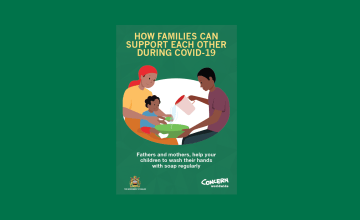
This paper takes a look at the global evidence on the gendered impact of Covid-19. It includes Concern’s multi-country quantitative research carried out with the Alliance 2015 in 23 countries as well as findings from Concern’s qualitative research in Sierra Leone, Bangladesh, Somalia and Malawi that took place in four rounds between June and September 2020.
The paper finds that while some of the immediate impacts have started to improve as restrictions have eased, many will have lifelong impacts on those that have been hardest hit.
Gender Based Violence (GBV) in all its forms, including intimate partner violence, teenage pregnancies, child marriage and school drop outs are likely to influence the opportunities of those most affected, disproportionately women and girls.
The stresses and strains of the economic shock that Covid-19 has brought combined with rigid concepts of masculinity have amplified existing inequitable gender norms, particularly around the division of labour and GBV.
This has only highlighted further that the foundation of inequitable and discriminatory norms and practices at national, community and interpersonal levels need to be firmly dismantled.
The paper includes a set of cross sectoral recommendations to address some of these challenges.


